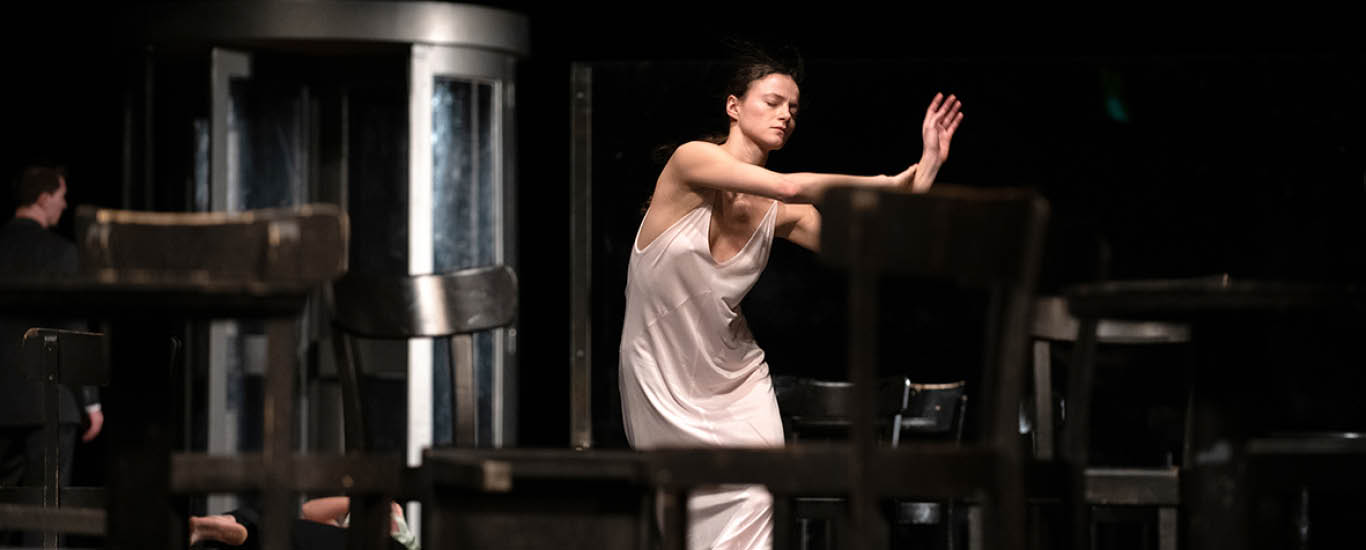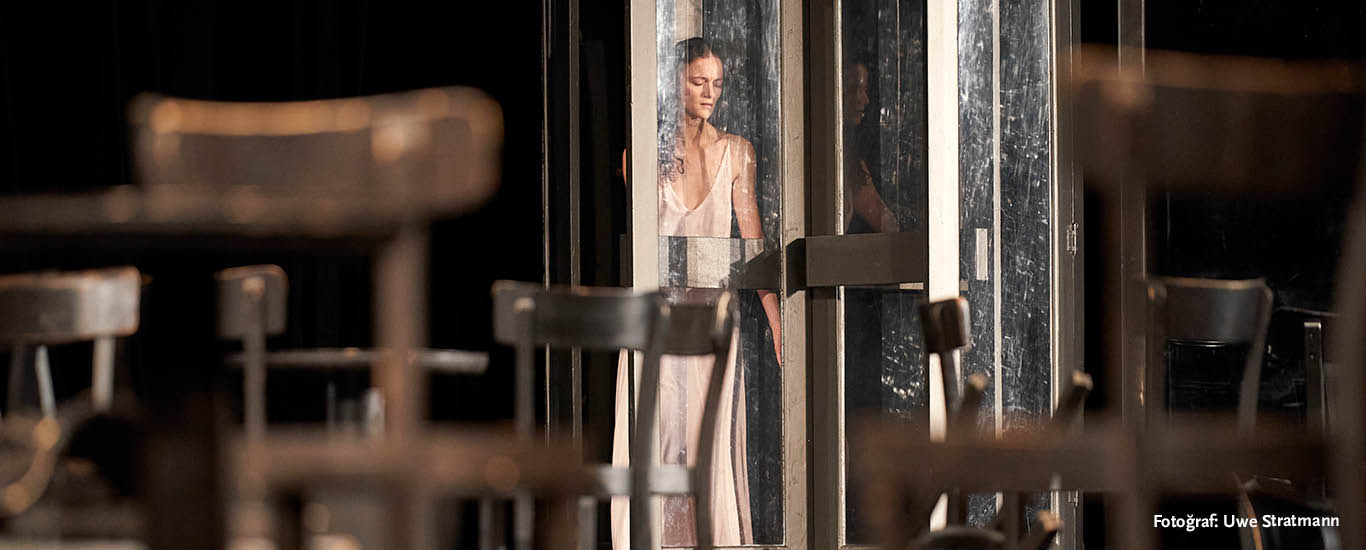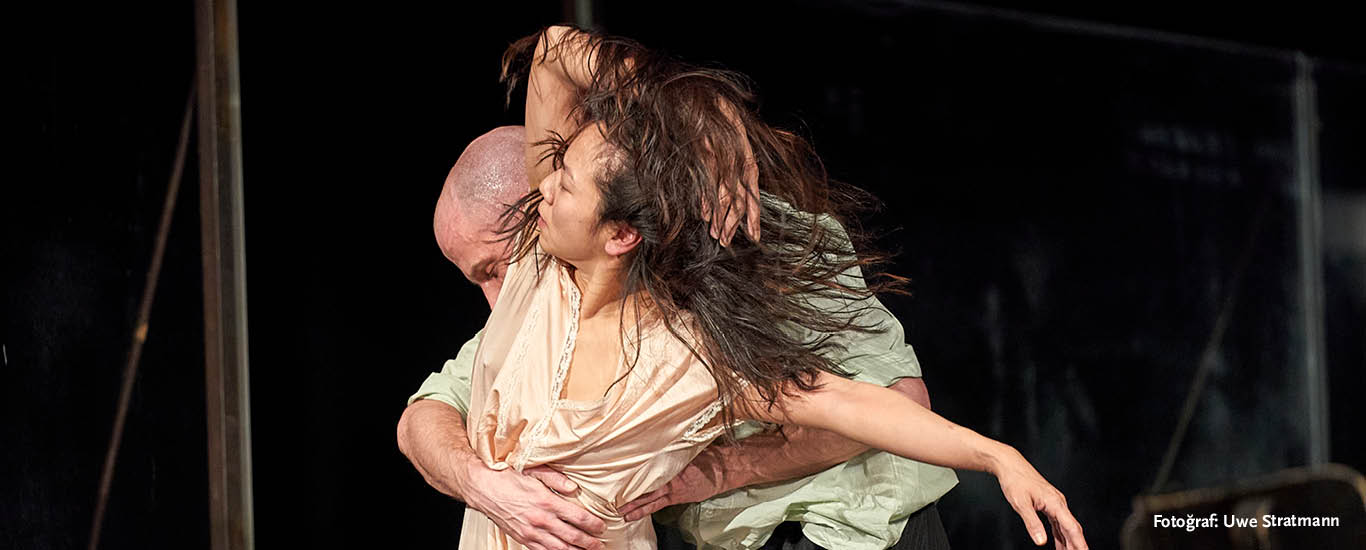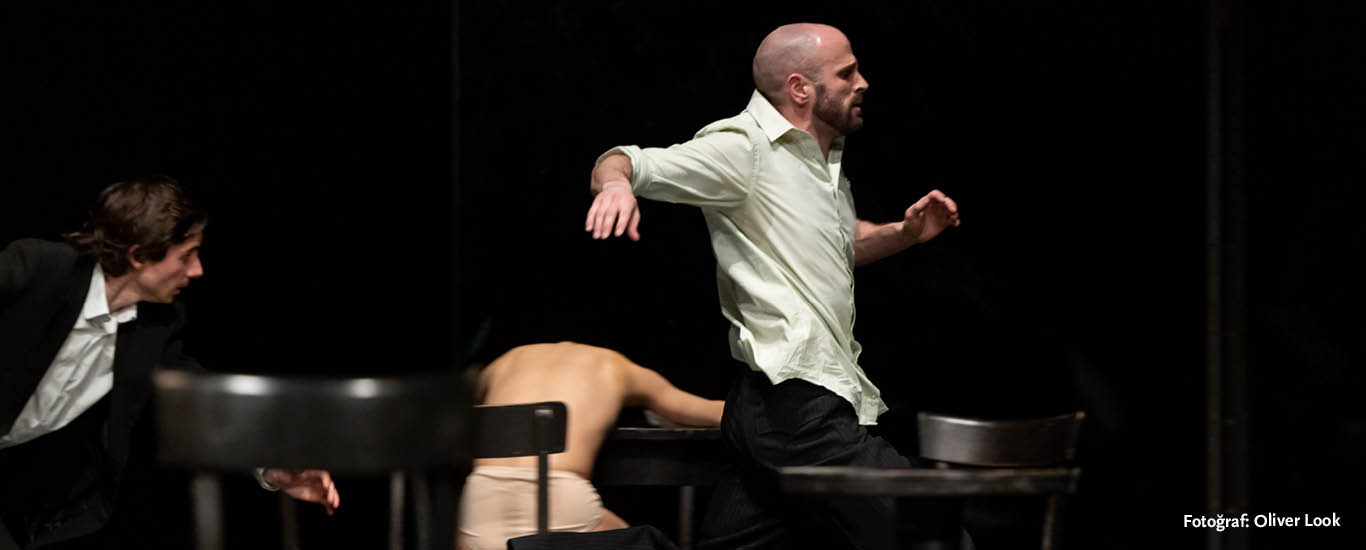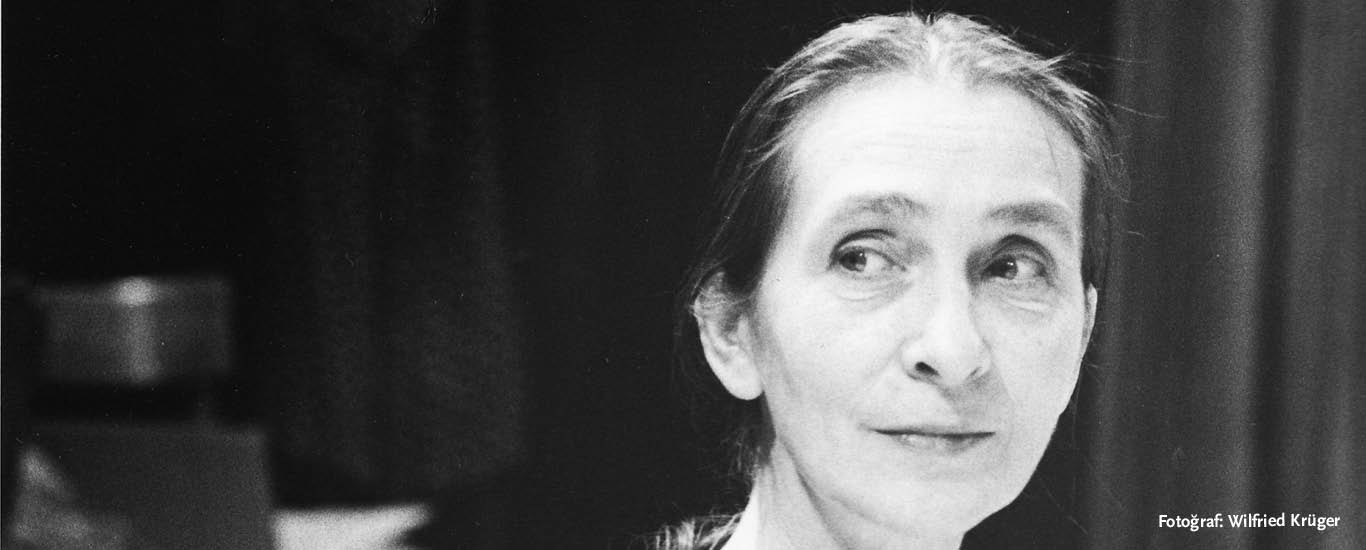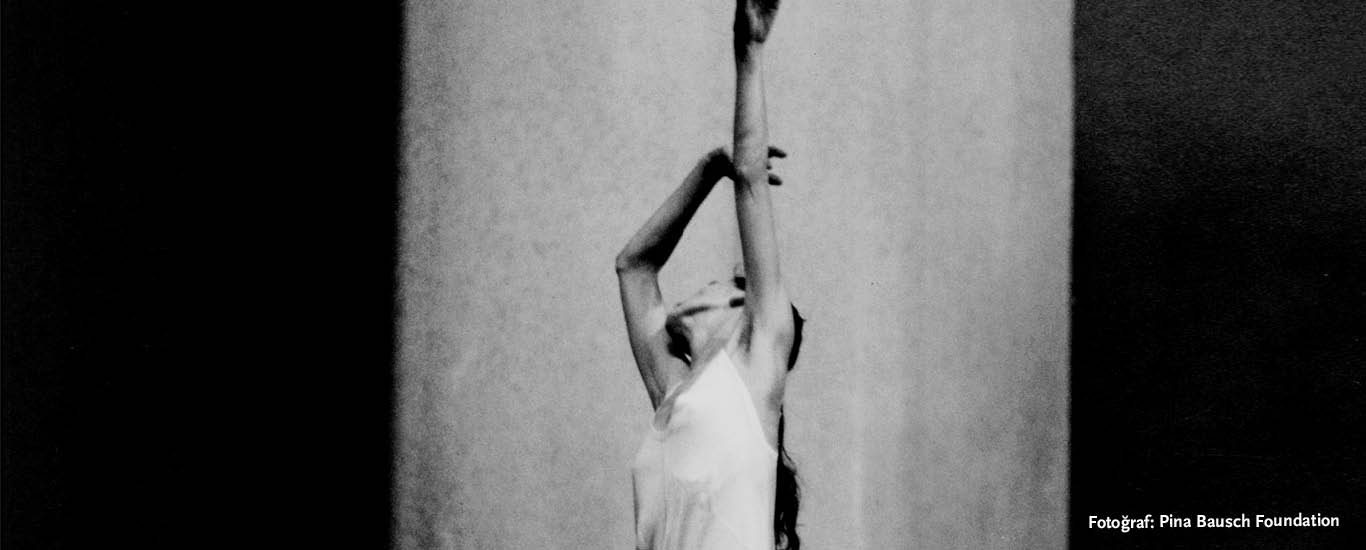TICKET INFO
| DATE&TIME | VENUE | ADD TO CALENDAR | TICKETS | |||
| {{item.tarih}} | {{item.mekan}} | TICKETS | TICKETS | FREE ADMISSION |
- Direction & Choreography PINA BAUSCH
TANZTHEATER WUPPERTAL PINA BAUSCH + [terrain] BORIS CHARMATZ
- Music HENRY PURCELL
- Set Design & Costumes ROLF BORZIK
- Collaboration MARION CITO, HANS POP
- Rehearsal Directors BARBARA KAUFMANN, HELENA PINON (guest)
- Collaboration MAGALI CAILLET GAJAN
- Performance Rights VERLAG DER AUTOREN, Frankfurt am Main, representing PINA BAUSCH FOUNDATION
- Dancers 25 October 21.00 ve 26 October 19.00 Dean Biosca, Emily Castelli, Maria Giovanna Delle Donne, Taylor Drury, Reginald Lefebvre, Christopher Tandy
- Dancers 26 October 21.00 Taylor Drury, Letizia Galloni, Milan Nowoitnick Kampfer, Nicholas Losada, Tsai-Wei Tien, Frank Willens
Lasts approx. 45’ w/o interval.
Age Recommendation: 13+
25 OCTOBER WEDNESDAY, ZORLU PSM VESTEL AMFİ
19.00 Screening of the film Pina by Wim Wenders
26 OCTOBER THURSDAY, ZORLU PSM VESTEL AMFİ
17.00 Screening of the film Pina by Wim Wenders
19.00 Screening of the film Pina by Wim Wenders
The 27th Istanbul Theatre Festival opens with a timeless masterpiece by Pina Bausch!
Pina Bausch’s company Tanztheater Wuppertal presents her ground-breaking masterpiece, Café Müller, for the first time in Turkey with a new generation of dancers and as fresh and striking as ever.
Café Müller mirrors Bausch’s experiences in her family’s café of the same name during post-war Germany period, where she spent many hours watching adults struggling to survive in a devastated society. The café is a space of everyday life, with all its melancholy, feebleness, fears, and the longing to be understood, but it is also a place where there is hope to find love. It is afterhours; the ghosts of the departed customers stumble blindly into walls and onto chairs but fail to find one another. Café Müller is a spectacular piece of dance theatre that tells the story of desire and loneliness.
Pina Bausch wrote dance history. She not only founded the world-famous company in Wuppertal, she shaped a whole genre – dance theatre – and influenced countless other artists, choreographers and directors worldwide who credit her and her work. When she first arrived in Wuppertal in 1973, no-one guessed she would reinvent modern dance there. The young dancer and choreographer (1940-2009) took over the ballet company at the Wuppertaler Bühnen (the combined municipal theatres) and soon renamed it the Tanztheater Wuppertal (‘Wuppertal dance theatre’), because that was her goal: to unite dance and theatre. She made forty-six works, and even decades after their creation they move us, stir us, touch a nerve. Many of the works are still in the company’s repertoire and the company maintains and preserves this heritage with great devotion, care and energy.


